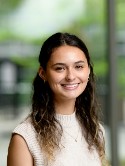Getting cancer is “just bad luck”: Exploring bereaved emerging and young adults' cancer risk uncertainty after caring for a parent with advanced cancer Journal Article
| Authors: | Kastrinos, A.; Salafia, C.; Gebert, R. R.; Mroz, E. L.; Fisher, C. L.; Applebaum, A. J. |
| Article Title: | Getting cancer is “just bad luck”: Exploring bereaved emerging and young adults' cancer risk uncertainty after caring for a parent with advanced cancer |
| Abstract: | Background: Emerging and young adult caregivers (EYACs) who provide care to a parent with advanced cancer are underrepresented in caregiving scholarship, and yet, are not uncommon. Little is known about the psychosocial impacts of caring for a parent at this age or how EYACs manage their uncertainty regarding their own, potentially elevated, future cancer risk. Aims: To employ Uncertainty Management Theory (UMT) to examine how bereaved EYACs of a parent who died of advanced cancer appraise and manage their uncertainty regarding their personal cancer risk. Methods: We conducted a secondary analysis of in-depth, semi-structured interviews with EYACs (age 18–35) who cared for a parent who died of advanced cancer (n = 33) < 5 years prior. The interviews were transcribed and thematically analyzed. Results: Some EYACs described appraising their cancer risk uncertainty as an opportunity and were motivated to reduce their risks through behavior choices. Others appraised it as a danger and experienced anxiety, paranoia, and fatalism about their risk. Others described their parents' cancer as “just bad luck,” believing it to be a random anomaly that could not impact their cancer risk and reported no changes in their appraisal of their cancer risk uncertainty. Conclusions: EYACs' opportunity and danger appraisals align with studies of high hereditary risk populations but reporting no change in cancer risk uncertainty is unique. The long-term health implications of appraising their parent's cancer as a random occurrence, disconnected from their personal risk, remain unknown. Future research should seek to help both bereaved and active EYACs better understand their cancer risk and manage their uncertainty. © 2025 John Wiley & Sons Ltd. |
| Keywords: | adolescent; adult; young adult; advanced cancer; cancer risk; pancreas cancer; neoplasm; neoplasms; breast cancer; psychology; lung cancer; oncology; adaptation, psychological; interviews as topic; lymphoma; bereavement; psychosocial care; stomach cancer; interview; caregiver; familial cancer; brain cancer; anxiety; esophagus cancer; genetic screening; mother; qualitative research; ethnicity; lifespan; race; semi structured interview; psychological adjustment; parents; parent; caregivers; secondary analysis; uncertainty; child parent relation; participation; caregiving; paranoia; father; uncertainty management theory; humans; human; male; female; article; malignant neoplasm; emerging adults; chronic uncertainty; hereditary risk |
| Journal Title: | Psycho-Oncology |
| Volume: | 34 |
| Issue: | 5 |
| ISSN: | 1057-9249 |
| Publisher: | John Wiley & Sons |
| Date Published: | 2025-05-01 |
| Start Page: | e70161 |
| Language: | English |
| DOI: | 10.1002/pon.70161 |
| PUBMED: | 40325614 |
| PROVIDER: | scopus |
| PMCID: | PMC12139470 |
| DOI/URL: | |
| Notes: | The MSK Cancer Center Support Grant (P30 CA008748) is acknowledged in the PubMed record and PDF. Corresponding MSK author is Amanda Kastrinos -- Source: Scopus |
Altmetric
Citation Impact
BMJ Impact Analytics
Related MSK Work






